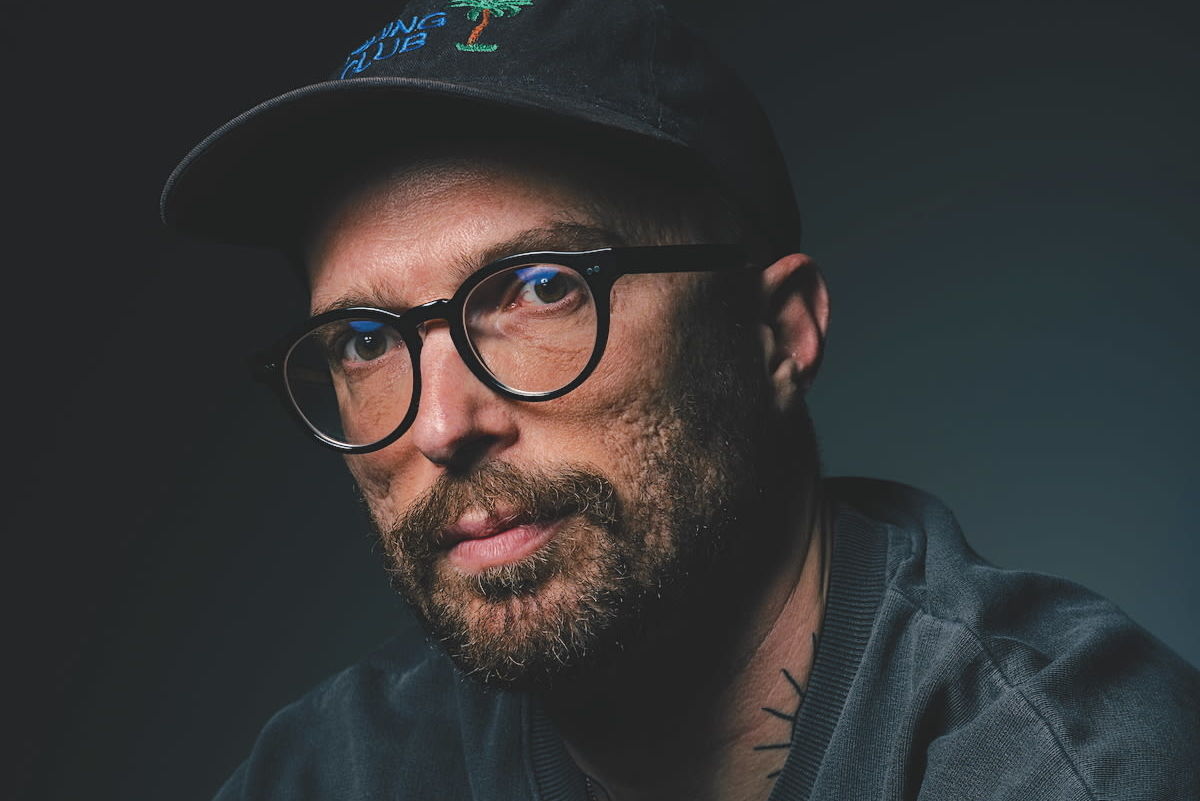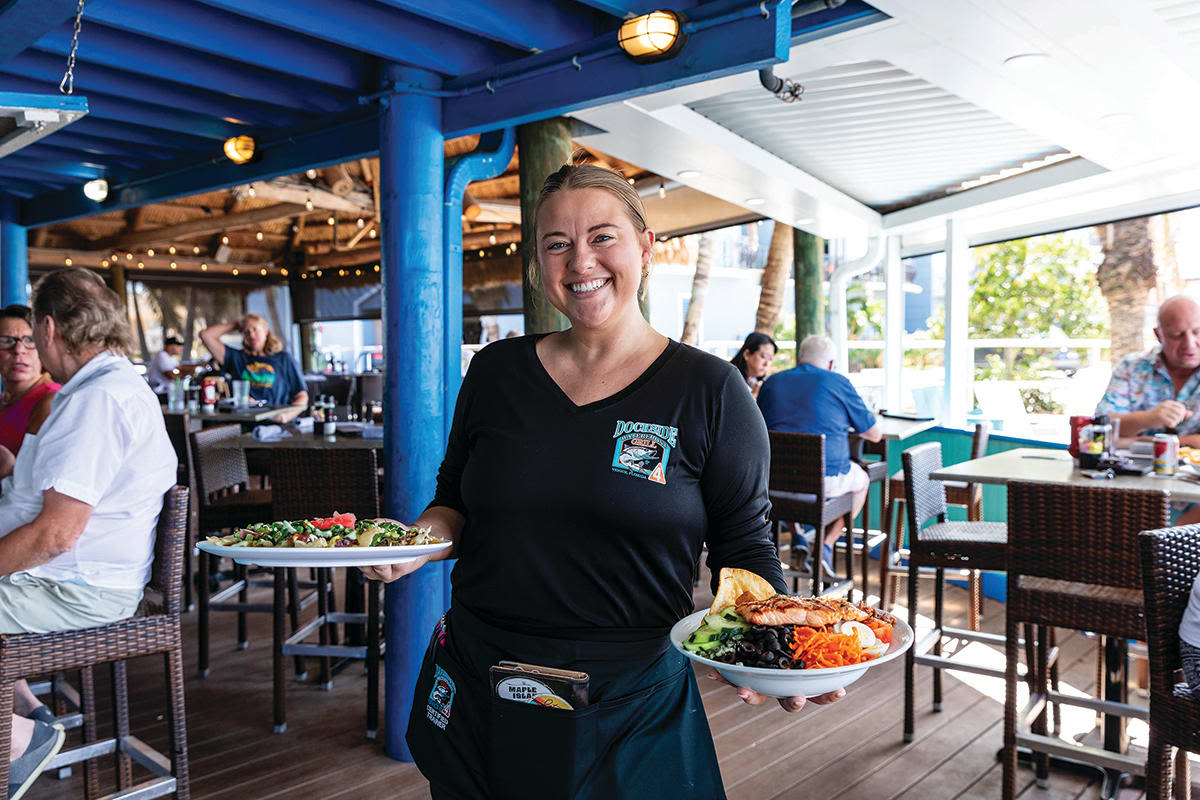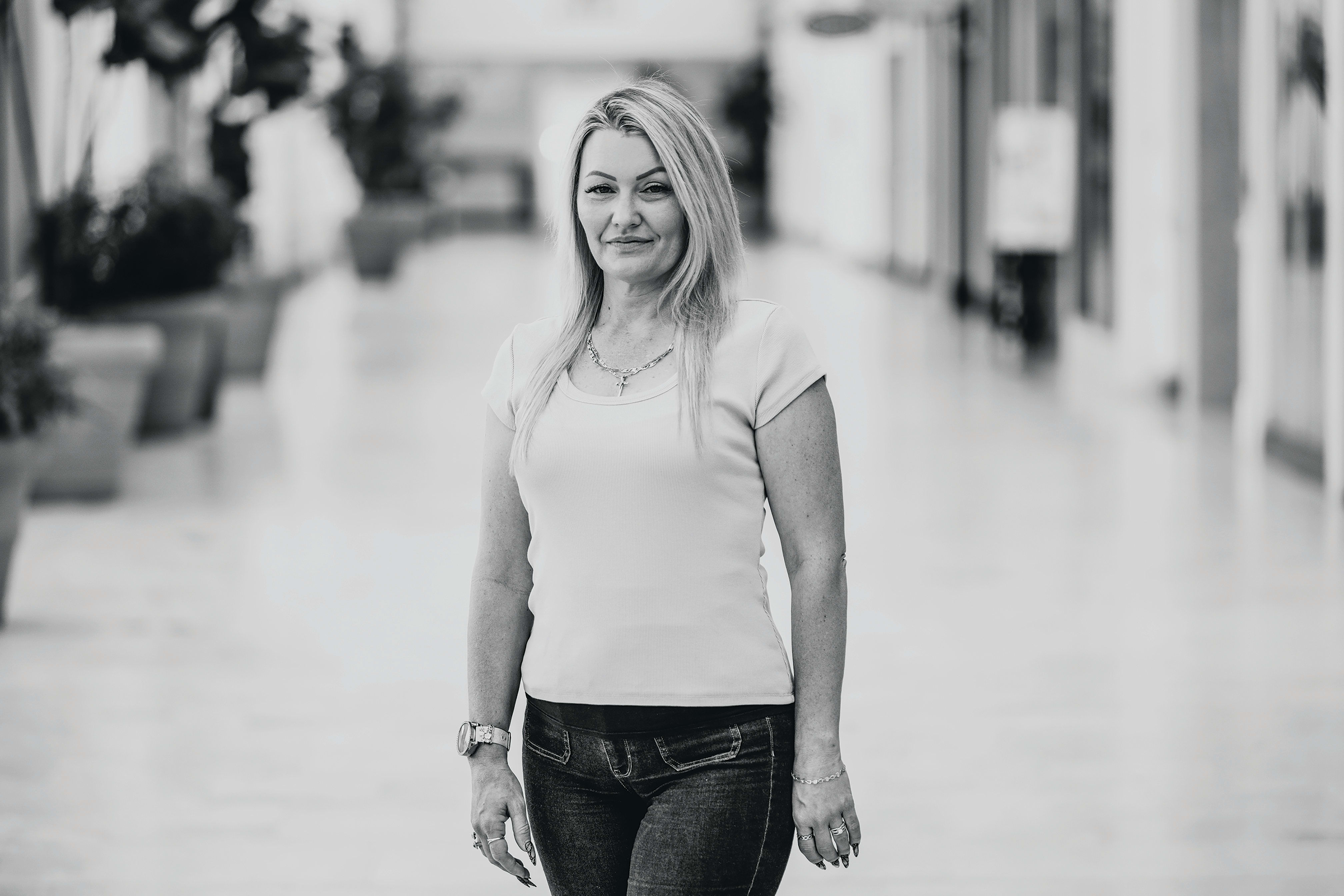How to Help Someone Grieving a Covid Death

You hear that grieving never stops—that it's an ongoing process.
That process may be extra-complicated when losing a loved one to Covid.
For more than 20 years, Rev. Elizabeth Turk, owner of Forever in Your Hearts Eulogies, has been writing celebration of life services for those who have passed. When she's talking to families to learn more about lost loved ones due to Covid, she sees emotions beyond those typically seen with what she calls “customary death.” she says. Emotions like regret, guilt and anger.
In many cases, “family members blame themselves for not pushing harder to get their loved one vaccinated,” she says.
It’s one of the markers that come with what Callie Weber calls “disenfranchised grief.” She’s the operational director for adult grief services at Tidewell, a local nonprofit that provides grief support free of charge. It also has hospice houses and offers children’s and veterans' services and a wide array of programs that benefit families dealing with advanced illness.
Disenfranchised grief can hinder the grieving process, causing feelings to be more acute. It's different in that “it carries elements of shame, guilt and the trauma of not being able to see loved ones due to isolation,” Weber says.
Another example of disenfranchised grief includes “people feeling guilty for having their loved one in a facility where they were more vulnerable to catching Covid,” Weber says.
Often, it can also be described as grief that isn’t widely accepted within the larger community. The way that can play out is in the questions people ask of those who have lost a loved one to Covid.
Posed without ill intent, these questions often seek to validate life or death outcomes. They can include questions about age, lifestyle, pre-existing health conditions and the vaccination status of those who have passed.
Those questions are not helpful for those fielding them, Weber says. "People who reach out to us at Tidewell talk about how those questions hurt, because they feel like they're being judged."
She didn't use the term disenfranchised to describe her grief, but Gina Nuzzo, the owner of Eating in Moderation, feels its effects. She lost her mother and father to the virus. Both in their 60s, they were healthy and had no underlying physical conditions. As random as the virus has been in who and how it affects people, it still surprises people when she tells them her parents passed of Covid, Nuzzo says.
For those left behind, like Nuzzo, the ubiquitous nature of Covid information, news stories and even Covid success stories can be a repeat trigger, from signs for mask-wearing on shop doors to news reports. Then add to that those who don’t believe the pandemic exists.
At a recent gathering in someone’s home, the host called the pandemic a hoax. Nuzzo stayed quiet.
“This is their perception and experience," she says. "Mine is that my parents dropped dead from Covid and that didn't happen to them. If that person had a parent in a hospital bed on a ventilator with Covid that they watched on Facetime, they wouldn't say that."
So where do the questions and disbelief stem from?
The need to feel protected, Weber says.
"People want to check off certain boxes because they want to feel safe," she explains. "If someone is a certain age or has a prior condition, it's as if it's more acceptable. It's the unexpected we're afraid of."
Other than not asking those questions or labeling the pandemic as fake, what are some things we can do to help loved ones who are grieving? According to Weber and Nuzzo, grief doesn't go away, but there are ways to lend support.
- Check in with a phone or house call.
- Say, "Tell me about your person." This gives the griever permission to talk about their lost loved one.
- Bring meals.
- Grief has no timeline. While the person might feel a lot of support immediately after losing a loved one, it's helpful to check in three months later, too.
- Remember the lost person's birthday. Reach out to the person who lost them on that day.
- On holidays, ask, “How would you like to honor this person or celebrate this day?” and do it.
- Tell the person grieving you see them. Acknowledge their pain even if they're not crying.
- Take a walk together.
- Point them to resources that can help.
Tidewell is kicking off a remote support group with a focus on Covid-related grief and loss on Oct. 6. Groups of no more than ten participants will meet Wednesdays, at 2:30 p.m. over the course of eight weeks via Zoom. Click here to register.



